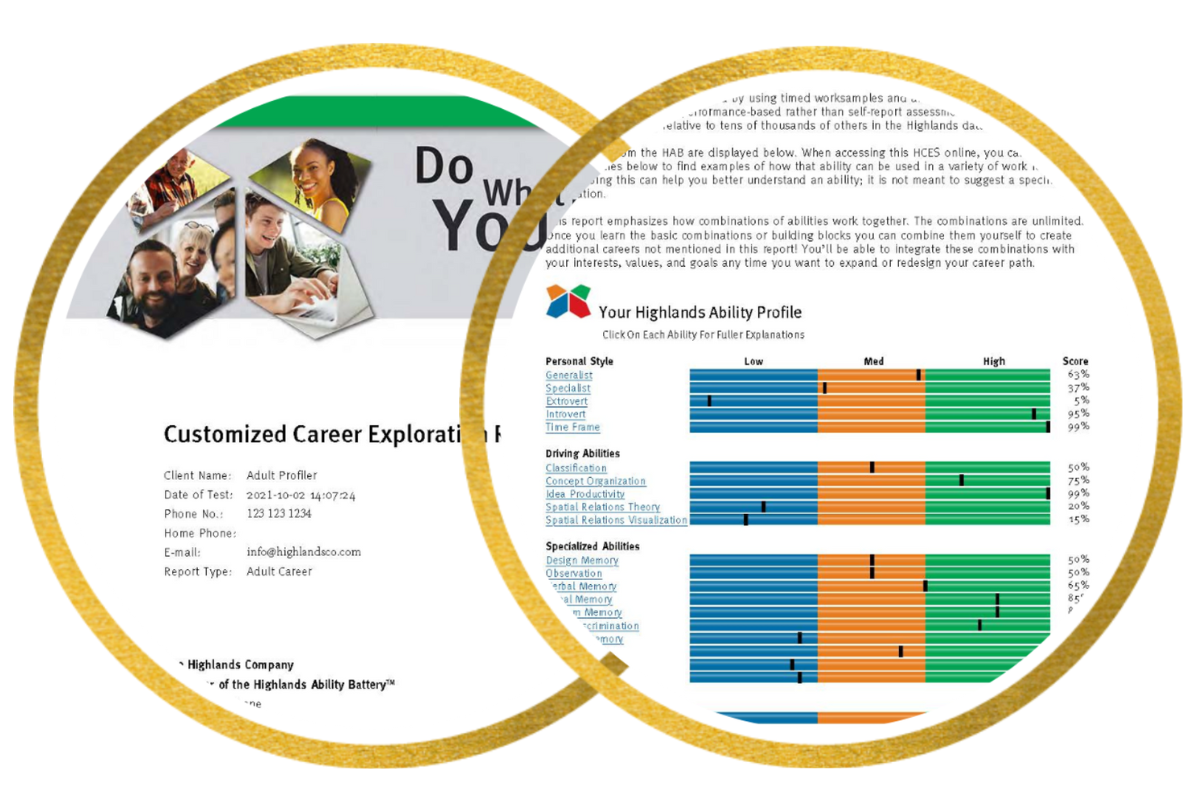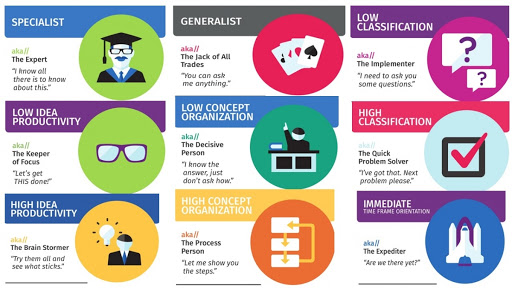Discover the world of career assessments and their role in decision-making. Learn about the different types available, their benefits, and limitations. Uncover the power of personality, aptitude, and interest tests in guiding meaningful career choices. Make informed decisions to shape your future.
Career assessments can help you make a career decision.
There are many different career assessments, and often you will find them for free online. However, in many cases you get what you pay for and the free ones are either rip offs of established assessments or based on limited psycholigcal theory, just because they lok good it doesn’t make them a repulable assessment.
In this article I want to introduce you to the different types of assessments available and see which will be most helpful to you.
Career tests are based on career theory which draws on three major domains of individual differences – cognitive (ability), conative (motivation and interest) and affective (personality). These are assessed via different career assessments. Ability tests, personality questionnaires, and interest inventories. They produce a wealth of data, and working with a skilled psychologist will enable you to draw together the results of whichever career tests are chosen and are used within an in-depth discussion to lead to meaningful decisions.
Career Aptitude Tests
These career tests are also timed but comprise many different work samples. For example, the Highlands Ability Battery comprises 19 work samples. Each is measured by a short, timed test. For this assessment, it is taken from a home computer and you manage your time yourself. So, it’s less like being in an exam, and you can take this career test over time. Another career test is The Morrisby Profile. The main difference being that this is used in schools and usually offered in an exam situation. They also offer a much shorter version, available online.
Personality Career Tests
Personality profiling helps you to understand your personality preferences and how to improve relationships with people. Knowledge of how you think and solve problems can help you in career decision making, including identifying the type of working environment that will bring out your best. I’d like to divide personality career tests into two. Those whose main purpose is personal development and those used as part of a selection process.
Personality Career Tests for Personal Development
The most popular personality career test is the Myers Briggs Type Indicator (MBTI ®). This self-reporting assessment helps people to understand their personal style and you can choose between the regular (Step 1) and the Step 2 which provides an in-depth understanding of your personality. The Myers Briggs Type Indicator (MBTI®) helps you to understand who you are, your natural preferences, motivations, and potential areas for growth. It is particularly helpful to understand how to relate to people, especially those with a different personality type.
You’ve probably come across the 4 dimensions
Where you get your energy from
- Extraversion– prefers to gain energy from the outside world of activity, people and things OR
- Introversion– prefers to gain energy from the inner world of reflections, feelings and ideas (E/I)
How you prefer to gather information
- Sensing– Prefers to focus on information gained from the senses and on practical applications OR
- Intuition– prefers to focus on patterns, connections and possible meanings (S/N)
How you prefer to make decisions
- Thinking– prefers to make judgements on logic and objective analysis OR
- Feeling– prefers to base decisions on values and what is important to people (T/F)
Preferred lifestyle
- Judging– likes a planned and organised approach to life and to make decisions OR
- Perceiving– likes a flexible, spontaneous approach and prefers to keep options open (J/P)
If you are considering the MBTI Step 1, you may be interested in the alternative – Type Dynamic Indicator. What I like this is the Is/Want option – so you answer questions as your life is now, and also as you want it to be.
Personality Career Tests for Selection
Organisations want to understand more about the people who may join their organisation, that’s why they will often use assessment centres. Part of the assessment centre, and used as part of the selection process, is the career test – the personality questionnaire. There are many personality career tests in use including the OPQ, 16PF5, 15FQ, Saville’s Wave. Whilst there are differences between these personality career tests, most are based around the ‘BIG FIVE’
- Openness to experience: Openness reflects the degree of intellectual curiosity, creativity and a preference for novelty and variety a person has. High openness can be perceived as unpredictability or lack of focus. Those with low openness seek to gain fulfillment through perseverance, and are characterized as pragmatic and data-driven
- Conscientiousness: A tendency to be organized and dependable, be disciplined, and prefer planned rather than spontaneous behaviour. High conscientiousness is often perceived as stubbornness and obsession. Low conscientiousness is associated with flexibility and lack of reliability
- Extraversion: Energy, positive emotions, assertiveness, sociability and the tendency to seek the company of others. High extraversion is often perceived as attention-seeking, and domineering. Low extraversion causes a reserved, reflective personality.
- Agreeableness: A measure of one’s trusting and helpful nature, and whether a person is generally well-tempered or not. High agreeableness is often seen as naive or submissive. Low agreeableness personalities are often competitive or challenging people.
- Neuroticism: Neuroticism refers to the degree of emotional stability and impulse control and is sometimes referred to by its opposite – emotional stability”. A high need for stability manifests as a stable and calm personality. A low need for stability can be perceived as unstable or insecure.
Career Tests – Interest Inventories
Interest Inventories help you to understand more about your interests and how to use this to make a career choice. Based on an extensive questionnaire you can see how these interests link to different careers. The Strong Interest Inventory is the most widely used interest inventory available and designed to help you identify your pattern of vocational interests. This is especially useful for people in the early stages of career planning. It will not predict with certainty what occupation you should consider. However, by indicating how similar or dissimilar your interests are in comparison with people in a wide variety of occupations, it can be a useful step towards identifying work settings and occupations that may be satisfying to you.
If you would like to use Career Tests to find out more about who you are, for personal or career development, or to prepare for a forthcoming assessment centre get in touch to discuss how I can help.
Image by Gerd Altmann from Pixabay





